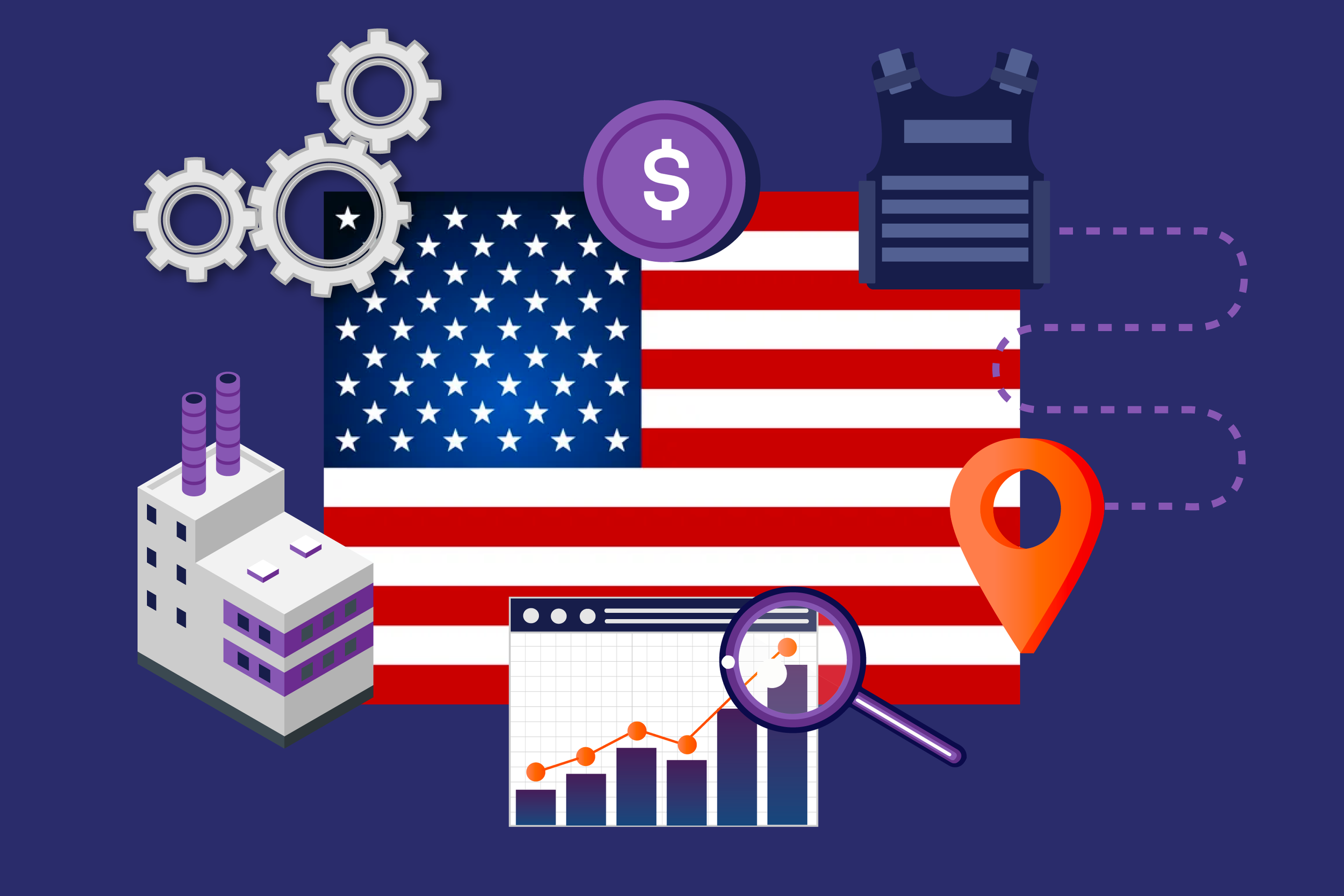Body Armor Recycling Programs: Sustainable Solutions for Law Enforcement and Military Gear
Designed to protect against ballistic threats, body armor saves lives and provides critical security for those on the front lines of our communities worldwide. However, body armor has a finite lifespan, as does all protective equipment. As body armor reaches the end of its service life, the disposal challenge becomes apparent. This challenge presents an opportunity: body armor recycling programs offer sustainable solutions that benefit both the environment and the communities they serve. This article delves into the importance of these programs, how they work, and the benefits they offer, supported by case studies and examples of successful initiatives.
The Urgent Need for Recycling Programs for Body Armor
The significance of recycling programs for body armor cannot be overstated. Body armor typically comprises Kevlar, ultra-high-molecular-weight polyethylene (UHMWPE), and ceramics. These materials are designed to withstand extreme conditions and are not biodegradable, posing a significant environmental hazard when discarded improperly.
Photo by Fiber Brokers International
Environmental Impact: Traditional disposal methods for body armor, such as incineration or landfill dumping, can release harmful chemicals into the environment and occupy valuable landfill space. Recycling these materials mitigates their environmental footprint and conserves natural resources by reducing the demand for raw materials.
Resource Recovery: Recycling programs can recover valuable materials from used body armor. For instance, Kevlar and other aramid fibers can be repurposed for various applications, including construction materials, automotive parts, and new protective gear. This not only reduces waste but also supports the circular economy.
Community and Economic Benefits: By supporting and advocating for the implementation of body armor recycling programs, you can help create jobs and support local economies. These programs require skilled labor for material sorting, processing, and repurposing, generating employment opportunities within the community. Your involvement can make a significant difference.
How Body Armor Recycling Programs Work
Effective body armor recycling programs involve several vital steps to ensure that materials are safely and efficiently processed for reuse. The following outlines the general process:
Collection: The first step involves collecting used or expired body armor from law enforcement agencies, military units, and other sources. This can be achieved through scheduled pickups, drop-off locations, or partnerships with manufacturers and distributors.
Sorting and Inspection: Once collected, the body armor is sorted and inspected to determine its condition. Any components still in suitable condition may be refurbished for reuse, while damaged or expired materials are earmarked for recycling.
Material Separation: The body armor is then disassembled to separate different materials, such as aramid fibers, polyethylene, and ceramics. Specialized machinery and processes ensure that materials are extracted without compromising their integrity.
Processing and Repurposing: The separated materials undergo processing to prepare them for reuse. For example, Kevlar fibers may be shredded and treated to create new composite materials, while ceramics can be crushed and used in construction or manufacturing.
Distribution: The recycled materials are distributed to manufacturers, who incorporate them into new products. This closes the loop and ensures valuable resources are continuously cycled back into the economy.
Benefits of Body Armor Recycling Programs
The benefits of body armor recycling programs extend beyond environmental conservation. These programs offer various advantages supporting sustainability, economic growth, and community well-being.
Sustainability: By recycling body armor, agencies and organizations contribute to sustainability efforts, reducing their environmental impact and promoting responsible resource use. This aligns with broader initiatives to combat climate change and preserve natural ecosystems.
Cost Savings: Recycling programs can lead to significant cost savings for law enforcement and military organizations. By repurposing materials, agencies can reduce expenditures on new raw materials and minimize waste disposal costs.
Enhanced Safety and Innovation: Recycled materials can be used to develop new, innovative protective gear. Advances in material science and recycling technology enable the creation of lighter, stronger, and more versatile body armor, enhancing the safety and effectiveness of protective equipment.
Community Engagement: Recycling programs foster community engagement and awareness about environmental issues. Public participation in recycling initiatives promotes a culture of sustainability and encourages individuals and organizations to take active roles in conservation efforts.
Examples of Successful Recycling Initiatives
Ballistic Recycling International
Overview: Ballistic Recycling International specializes in the recycling and certified destruction of body armor. They provide services to government agencies, law enforcement, and private organizations. Their process ensures that ballistic materials are destroyed and repurposed into non-ballistic products such as automobile parts, sporting goods, optical fiber cable systems, and flame-retardant clothing.
Process:
Collection: Ballistic materials are collected from various agencies and organizations.
Certified Destruction: The collected body armor undergoes a certified destruction process to ensure compliance with regulations and prevent unauthorized reuse.
Recycling and Reuse: The core materials are recovered and repurposed into new products after destruction. This reduces landfill waste and promotes the circular economy by giving valuable materials a second life.
Impact: This program mitigates environmental impact, contributes to resource recovery, and supports sustainable practices in manufacturing non-ballistic products.
More Information: Ballistic Recycling International
Fiber Brokers International
Overview: Fiber Brokers International has focused on safely destroying and recycling ballistic and non-ballistic materials for over 15 years. They act as an intermediary between law enforcement or military organizations with out-of-service body armor and recycling outlets that can reuse the raw materials in pulp or fiber form.
Process:
Collection: Retired body armor is collected and transported to their facilities in secure, tamper-evident packaging.
Inventory and Documentation: The collected armor undergoes a thorough inventory process, and customers receive a list of serial numbers and a certificate of destruction.
Material Separation and Recycling: The body armor is deconstructed, and the ballistic fibers are separated and shredded for reuse in non-ballistic products such as brake pads, car tire treads, cut-resistant work gloves, boat rope, and fire hoses.
Impact: Fiber Brokers International helps reduce landfill waste and supports zero-waste recycling efforts. Their strict material logging and tracking process ensures compliance and assures customers that their materials are disposed of properly.
More Information: Fiber Brokers International
Introduction to Recycling Programs for Suppliers of Body Armor
Recycling programs for body armor suppliers are crucial for promoting environmental sustainability and ensuring the responsible disposal of protective gear.
These programs can include manufacturer take-back initiatives and partnerships with specialized recycling firms. For example, Point Blank Enterprises operates a take-back program where law enforcement agencies return used body armor for recycling, repurposing materials like Kevlar and UHMWPE into new protective gear. Similarly, Safariland Group collaborates with recycling firms to recycle ballistic panels, diverting significant waste from landfills.
An example recycle program language document is included to help suppliers build effective recycling programs.
“BODY ARMOR SUPPLIER RECYCLING PROGRAM”
Recycling Programs for End User Agencies in the SLED Market
Recycling programs for end-user agencies in the State, Local, and Education (SLED) market are essential for promoting sustainability and ensuring the responsible disposal of body armor.
These programs can include police department collection initiatives, military recycling efforts, and community drop-off events. For example, the New York Police Department (NYPD) has a program where officers return expired body armor to designated points for recycling, and the U.S. Army collects and recycles expired body armor through defense contractors. Additionally, community drop-off events in Canada facilitate recycling body armor from law enforcement, military personnel, and civilians.
An example recycle program language document is included to help end-user agencies build effective recycling programs.
“BODY ARMOR END USER RECYCLING PROGRAM”
Body armor recycling programs represent a crucial step towards sustainability and environmental stewardship in personal protection. These programs reduce environmental impact, conserve valuable resources, and support economic growth by effectively collecting, processing, and repurposing materials from used body armor. The success of initiatives such as the Armor Recycle Project and programs by the Dutch and UK Ministries of Defense highlights the potential for widespread adoption and significant benefits.
As global security concerns continue to grow, the demand for sustainable solutions in the body armor industry becomes increasingly urgent. Recycling programs offer a practical and impactful way to address this need, fostering a safer and more sustainable future for law enforcement, military personnel, and the communities they serve. By embracing these programs and advocating for their implementation, we can ensure that body armor protects lives and contributes to our planet's well-being.
IntelAlytic is at the forefront of promoting sustainable practices in the body armor industry. We invite suppliers and end users to join us in implementing effective recycling programs. By leveraging our comprehensive resources and expert guidance, you can contribute to a more sustainable future. Contact IntelAlytic today to learn how you can start or enhance your body armor recycling initiatives and make a lasting impact on both your community and the environment. Together, we can drive innovation, sustainability, and safety in the body armor industry.





